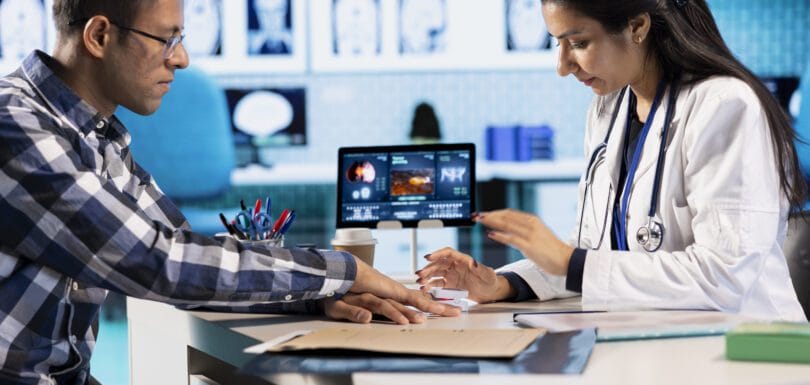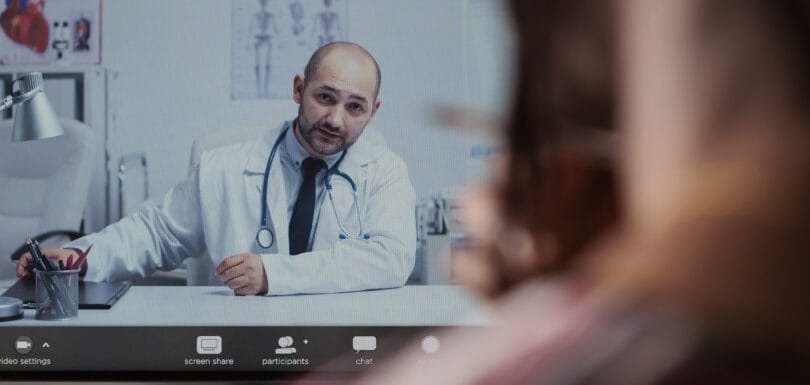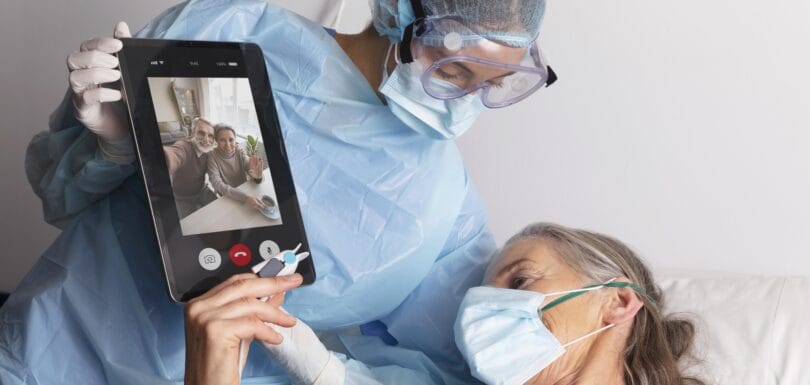7 Powerful Ways Virtual Medical Assistants Ensure HIPAA Compliance
Cyber Security and Data Privacy: Why Virtual Medical Assistants Must Be HIPAA Compliant In today’s fast-paced healthcare world, virtual medical assistants have become a lifeline for clinics, doctors’ offices, and practices of all sizes. From scheduling appointments to managing patient records, these digital helpers make day-to-day operations smoother. But while their presence is a blessing, it also brings responsibility especially when it comes to patient information. That’s why Virtual Medical Assistants HIPAA Compliance isn’t just a checkbox it’s essential for keeping patient trust intact. Many clinics are now turning to services like virtual medical office assistant support, healthcare virtual assistant services, and virtual assistant services for medical practices to streamline workflow. These services don’t just save time; they ensure that sensitive data is handled securely and responsibly. However, cyber security threats are real and growing. Data breaches, phishing attacks, and ransomware can hit medical practices hard, causing financial loss and eroding patient confidence. In this blog, we’ll walk you through why virtual medical assistants must follow HIPAA compliance rules, the cyber security measures they need, and the real benefits of keeping patient data safe. By the end you’ll understand how a HIPAA-compliant virtual assistant can protect your practice, your patients, and your peace of mind. For more insights on healthcare cyber security, you can check out HealthIT.gov for up-to-date guidelines and best practices. Understanding Cyber Security Risks in Healthcare Healthcare has become one of the biggest targets for cyber attacks, and the stakes are high. Patient data is extremely valuable, and unfortunately, hackers know it. Common threats include: Ransomware attacks: Hackers lock up medical records and demand payment. Phishing scams: Staff receive fake emails that trick them into sharing passwords. Data leaks: Mismanaged records or unprotected systems expose private information. Statistics show that over 40% of healthcare organizations faced a data breach in the last year alone. For instance, a hospital in New York experienced a ransomware attack that compromised thousands of patient files, halting operations for days. Such incidents don’t just cost money; they shake patients’ confidence and make clinics hesitant to share digital information. Moreover, even small practices are at risk. A minor error, like a misplaced file or unencrypted email, can result in a HIPAA violation. Clinics must understand that cyber security isn’t just about technology it’s about people, processes, and policies. For doctors, medical staff, and administrators, these risks translate into both operational headaches and legal liability. Without proper safeguards, patients might hesitate to trust virtual medical assistants, no matter how efficient they are. That’s why embedding cyber security into daily practice is no longer optional; it’s critical for survival. The Role of Virtual Medical Assistants in Modern Practices Virtual medical assistants are reshaping how healthcare runs behind the scenes. Essentially, they are remote professionals or software-driven assistants who handle administrative and clinical tasks, making life easier for busy doctors and staff. Tasks VMAs often handle include: Scheduling appointments and managing calendars. Updating electronic medical records (EMRs). Communicating with patients through secure messaging platforms. Billing and insurance follow-ups. By taking over these responsibilities, VMAs free up physicians to focus on patient care rather than paperwork. Services like healthcare virtual assistant, virtual assistant for medical practice, and virtual medical assistant services have made it possible for even small clinics to operate efficiently without overloading their in-house staff. However, with access to sensitive patient data comes great responsibility. VMAs aren’t just organizational tools; they become guardians of patient information. If the data isn’t handled properly, it can lead to privacy breaches, HIPAA violations, and even lawsuits. Therefore, understanding their role in cyber security and data privacy is essential for every modern healthcare practice. Why HIPAA Compliance is Non-Negotiable for Virtual Medical Assistants HIPAA, or the Health Insurance Portability and Accountability Act, sets the standard for protecting sensitive patient data. It applies to everyone in the healthcare ecosystem, including virtual medical assistants. Simply put, HIPAA ensures that patient information is kept confidential, secure, and accessible only to authorized personnel. Non-compliance isn’t a minor issue it comes with real consequences: Legal penalties ranging from fines to criminal charges. Reputational damage that can make patients lose trust in your practice. Operational disruptions when systems are audited or compromised. By following HIPAA rules, VMAs help clinics maintain trust, avoid fines, and create a culture of security. For instance, a virtual medical office assistant trained in HIPAA compliance knows how to encrypt emails, verify patient identity over phone calls, and safely store electronic records. Even something as simple as sharing login credentials without authorization can become a liability. For practices, investing in HIPAA-compliant virtual medical administrative assistants isn’t just about avoiding trouble it’s about delivering safer, more reliable healthcare. Clinics that enforce compliance show patients that they take privacy seriously, which strengthens long-term relationships and confidence. Top Cyber Security Measures VMAs Must Follow To protect sensitive data, VMAs need to implement strict cyber security protocols. Here are the most crucial measures: Secure communication channels: Use encrypted emails and HIPAA-compliant portals. Strong password management: Regularly update passwords and implement multi-factor authentication. Device and network security: Keep software updated, use firewalls, and secure Wi-Fi networks. Routine audits: Check for vulnerabilities and ensure policies are being followed. These steps are more than just rules they create a safety net that protects both patient data and the practice. For example a medical virtual assistant services provider often sets up these protocols during onboarding, embedding data privacy standards in every workflow. In addition, educating team members is key. VMAs should know how to spot phishing attempts or suspicious activity, reducing the risk of accidental breaches. Combining technology with human vigilance is the most effective approach to maintaining cyber security in healthcare today. How Virtual Medical Assistants Ensure Data Privacy in Daily Operations Daily operations of VMAs revolve around handling sensitive information safely. Here’s how they do it: EMR management: Only authorized users can access electronic medical records. Scheduling and billing: Patient data is stored and transmitted securely. Communication: Emails, texts, and calls are encrypted and logged. In












